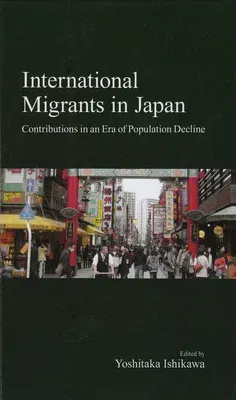Japan faces multiple challenges in an era of population decline.
Problems such as aging and a decreasing working-age population are
expected to increase in severity, so tackling these challenges and
examining the contributions that immigrants can make to society are
vital for Japan's future. What contributions do foreign residents make
to Japan, especially in the labor market? How do national and local
government policies effect the settlement and permanent residence of
foreign nationals? Are issues - such as social mobility and quality of
life of foreigners, the fertility of foreign women, and long-term trends
in naturalization - important? What support does Japan offer to
immigrants? As a 'new' country of immigration, the need to examine such
questions is growing. This book takes a geographical perspective in
examining the necessity of immigration and how foreign residents are
helping to alleviate the problem of population decline in contemporary
Japan. *** Over the last thirty years Japan has become a country of
immigration again. While the literature on migration to Japan is
growing, reliable data on the issue is still scarce.Yoshitaka Ishikawa's
edited volume is a major contribution to filling this void. Overall the
papers compiled in the book are a good introduction to the complex and
multifaceted realities of newcomer migrants and shed light on some
understudied quantitative and qualitative aspects of migration to Japan.
--Pacific Affairs, Vol. 89, No. 4, December 2016 (Series: Japanese
Society) [Subject: Sociology, Japanese Studies, Asian Studies,
Migration Studies, Labor Studies]

